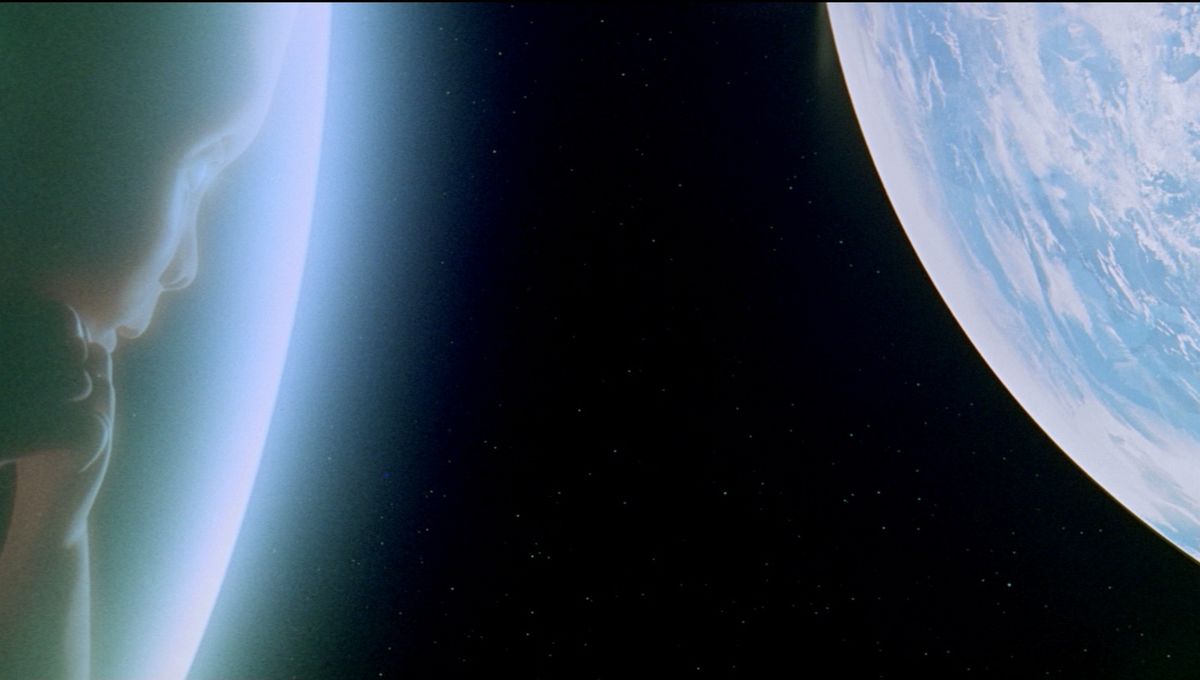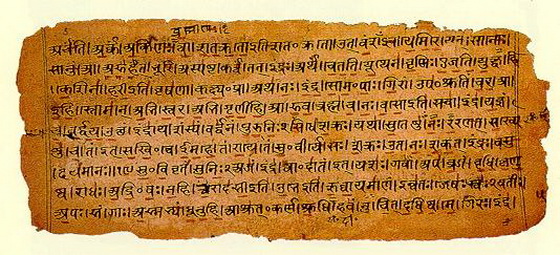There was an unfathomable, eternal void in which there raged an enormous, rushing sound. Imagine being in the center of a hurricane and listening to the rumble of each flurry and squall...except that there was no listener, no one listening to this cacophony. There then arose an awareness of the sound. This was followed by an awareness of being aware. Next arose the questions "Who is this who is aware?" and "What is this sound?", accompanied by growing curiosity and puzzlement. Realization dawned - the questioner was myself and the raging storm was the sound of my own breathing. I was a tiny atom floating deep inside the physical body I normally identify with, aware of every thunderous nuance and fluctuation of my breath as it rushed in through my nose, windpipe and bronchioles, and then out again.
A sense of the passage of time slowly returned. There was a slow transition from atomic existence to everyday "normal" awareness, that fuzzy sense of existing somewhere in our heads. In parallel, the hurricane subsided slowly until I could barely hear my breath even if I paid close attention.
Rewind about an hour. It was late one night at home in the quiet suburb of Redmond, Washington sometime in 2008. At about 10:30 pm, I'd sat down on the carpet of our bedroom to enter a deep meditative trance...and fallen asleep! Waking up is typically characterized by a groggy, clouded and abrupt emergence from deep sleep. On this occasion, aided no doubt by my attempts at trance induction, I was treated to the high-fidelity, slow motion version of the experience with the intermediate stages clearly discernible. In the framework of yoga, our everyday waking consciousness emerges from a deeper impersonal Awareness where there is no distinction between subject and object, or a-dvaita. As the Neil Sedaka song goes, Waking Up is Hard to Do, but each of us has the ability to experience this everyday, at will, should we chose to do so.
The Nasadiya Sukta, or the Rigvedic Hymn of Creation, offers interesting parallels:
नासदासीन्नो सदासीत्तदानीं नासीद्रजो नो व्योमा परो यत् |
किमावरीवः कुह कस्य शर्मन्नम्भः किमासीद्गहनं गभीरम् ॥ १॥
1. Then even nothingness was not, nor existence,
There was no air then, nor the heavens beyond it.
What covered it? Where was it? In whose keeping?
Was there then cosmic water, in depths unfathomed?
न मृत्युरासीदमृतं न तर्हि न रात्र्या अह्न आसीत्प्रकेतः |
आनीदवातं स्वधया तदेकं तस्माद्धान्यन्न परः किञ्चनास ॥२॥
2. Then there was neither death nor immortality
nor was there then the torch of night and day.
The One breathed windlessly and self-sustaining.
There was that One then, and there was no other.
I had a reprise of the above experience a few weeks later. The sequence of events was more or less identical, with one exception: instead of hurricane-like sounds of my own breathing, I was treated to the enormous rumbling sounds of my heartbeat and the blood rushing through it. Once again, the vividness and acuity with which experience unfolded gradually faded as I emerged into everyday awareness. On both occasions, given the gradual cessation of the experience, my heightened auditory awareness was clearly not imagined. The limits of the human senses are clearly an unplumbed ocean awaiting our exploration.
 |
| The mysterious ending from 2001: A Space Odyssey directed by Stanley Kubrick (1968) |
A sense of the passage of time slowly returned. There was a slow transition from atomic existence to everyday "normal" awareness, that fuzzy sense of existing somewhere in our heads. In parallel, the hurricane subsided slowly until I could barely hear my breath even if I paid close attention.
Rewind about an hour. It was late one night at home in the quiet suburb of Redmond, Washington sometime in 2008. At about 10:30 pm, I'd sat down on the carpet of our bedroom to enter a deep meditative trance...and fallen asleep! Waking up is typically characterized by a groggy, clouded and abrupt emergence from deep sleep. On this occasion, aided no doubt by my attempts at trance induction, I was treated to the high-fidelity, slow motion version of the experience with the intermediate stages clearly discernible. In the framework of yoga, our everyday waking consciousness emerges from a deeper impersonal Awareness where there is no distinction between subject and object, or a-dvaita. As the Neil Sedaka song goes, Waking Up is Hard to Do, but each of us has the ability to experience this everyday, at will, should we chose to do so.
 |
| Sleep and his Half-brother Death by John William Waterhouse (1874) |
The Nasadiya Sukta, or the Rigvedic Hymn of Creation, offers interesting parallels:
नासदासीन्नो सदासीत्तदानीं नासीद्रजो नो व्योमा परो यत् |
किमावरीवः कुह कस्य शर्मन्नम्भः किमासीद्गहनं गभीरम् ॥ १॥
1. Then even nothingness was not, nor existence,
There was no air then, nor the heavens beyond it.
What covered it? Where was it? In whose keeping?
Was there then cosmic water, in depths unfathomed?
न मृत्युरासीदमृतं न तर्हि न रात्र्या अह्न आसीत्प्रकेतः |
आनीदवातं स्वधया तदेकं तस्माद्धान्यन्न परः किञ्चनास ॥२॥
2. Then there was neither death nor immortality
nor was there then the torch of night and day.
The One breathed windlessly and self-sustaining.
There was that One then, and there was no other.
 |
| Nasadiya Sukta, 129th hymn of the 10th mandala of the Rigveda (10:129) |
I had a reprise of the above experience a few weeks later. The sequence of events was more or less identical, with one exception: instead of hurricane-like sounds of my own breathing, I was treated to the enormous rumbling sounds of my heartbeat and the blood rushing through it. Once again, the vividness and acuity with which experience unfolded gradually faded as I emerged into everyday awareness. On both occasions, given the gradual cessation of the experience, my heightened auditory awareness was clearly not imagined. The limits of the human senses are clearly an unplumbed ocean awaiting our exploration.